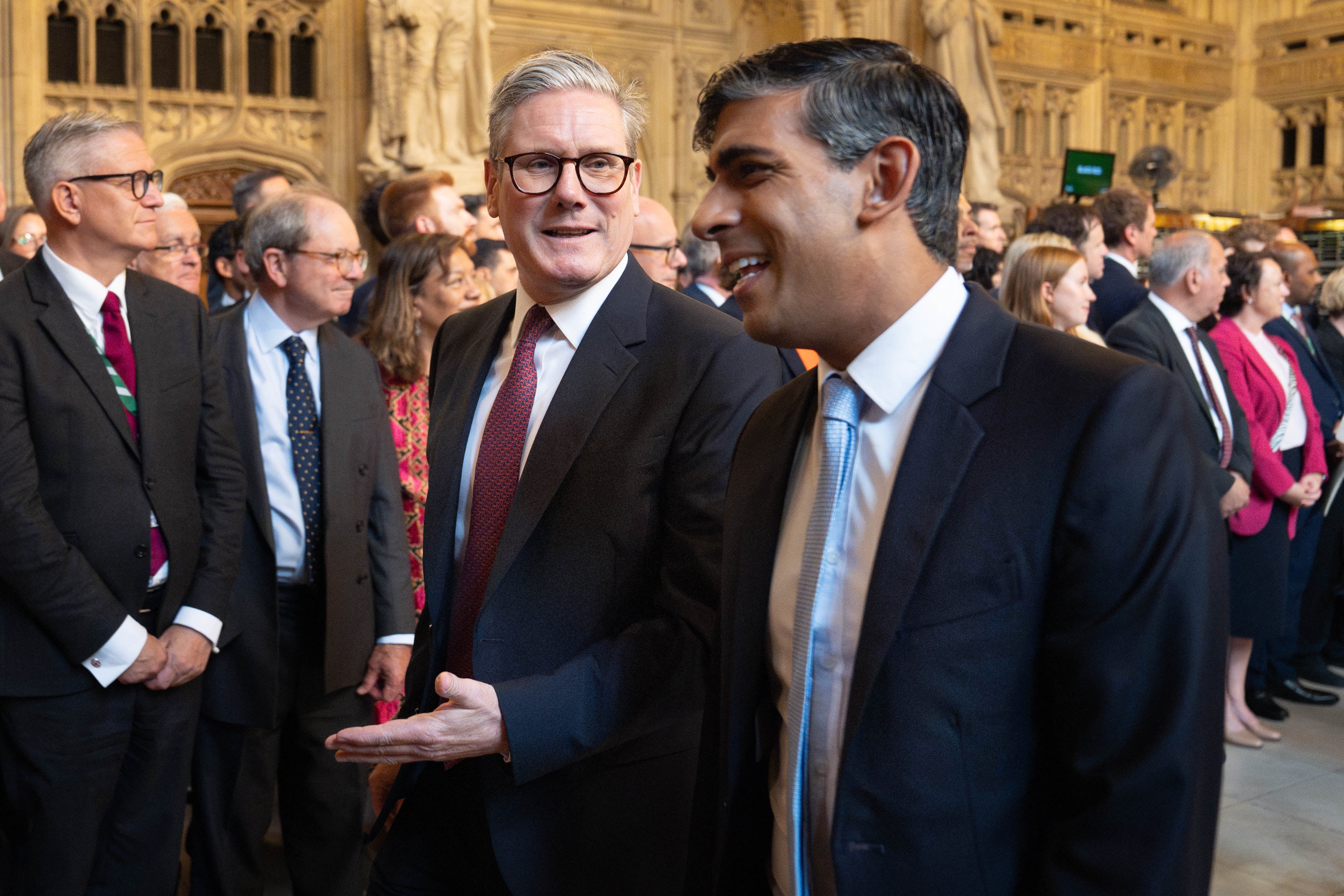In his response to the King’s Speech, Rishi Sunak laid three clever bear traps for the Starmer government
The temporary leader of the opposition was generous in defeat as he tried to lay the foundations of the Conservative fightback, writes John Rentoul


Keir Starmer paused in the middle of his speech setting out the new government’s legislative programme to say, almost as if he was surprised: “In each of our exchanges since the election, the leader of the opposition has gone well beyond the usual standards of generosity and I thank him for that.”
Rishi Sunak had indeed struck an unexpected tone by congratulating the prime minister on his election win. He was self-deprecating about his own career, warning the hundreds of new MPs opposite that they might rise in politics but “before you know it, you have a bright future behind you and you are left wondering if you can credibly be an elder statesman at the age of 44”.
The last time a sitting prime minister stayed on as leader of the opposition was in 1997 when John Major briefly led the Conservatives in opposing Tony Blair’s juggernaut. The other change of government since then was in 2010, when Gordon Brown left the scene and Harriet Harman, the deputy Labour leader, served as leader of the opposition until the leadership election was held.
Sunak seems to take an old-fashioned view that, as party leader, it is his responsibility to hold the fort until a successor is chosen, and so he set out in his response to the King’s Speech the beginnings of a strategy for the Tory fightback.
The first stage of that strategy is to deploy the weapon of cross-party reasonableness. After a lecture by Lindsay Hoyle, the speaker, on the importance of MPs treating each other with respect, and after everyone agreed that the temperature of politics should be reduced in response to the attempted assassination of Donald Trump, Sunak modelled courtesy and bipartisanship.
He started his response to the King’s Speech by supporting two of the measures in it that were left over from his government: the gradual ban on smoking and Martyn’s Law, which requires venues to draw up a plan for a terrorist attack. And he welcomed the Labour government’s steadfast support for Ukraine against Vladimir Putin’s aggression.
Having established common ground, only then did Sunak try to lay some traps for Labour. He tried to push back against Rachel Reeves’s line that she had inherited the economy in a terrible state, which means that any disappointments can be blamed on the Tories. “I understand well that the chancellor is keen to paint as bleak a picture as possible, but I would just gently point out that this is not exactly what the facts say,” he said. “The party opposite has inherited an economy that is already on an upward trajectory.”
The party opposite did not agree, and the happy atmosphere of cross-party agreement started to evaporate. But Sunak was trying to prepare the way for his successor to take advantage when public opinion does eventually turn against Labour. He said that a plan to reduce the welfare bill was missing from the King’s Speech, and he warned that policies pursuing net zero put the necessary “public consent” at risk.
But it may be many, many years before this groundwork yields any benefits for the Tory party. One thing that was painfully evident from Sunak’s assault on the King’s Speech was that he could not say anything about the government’s weakest flank – its refusal to lift the two-child benefit limit.
It is too soon for the Tory leadership to U-turn on the policy it defended only two weeks ago – not unless Suella Braverman is instantly drafted as Conservative leader. Her surprising demand during the general election for the limit to be lifted was clearly with an eye to her own post-election leadership campaign. But the Tory party supertanker as a whole cannot be turned around that quickly.
Which means that the battle to change the policy will be fought out within the Labour Party – as Starmer seemed to acknowledge when he announced a task force on child poverty just before MPs assembled to debate the King’s Speech.
Regardless of Sunak’s decency and responsibility, the Conservative Party seems condemned to irrelevance for many years yet.



Join our commenting forum
Join thought-provoking conversations, follow other Independent readers and see their replies
Comments